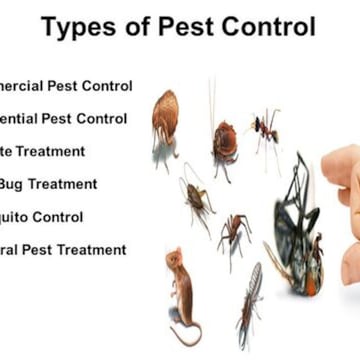All about Pest Control
All about Pest Control
Blog Article
The 6-Minute Rule for Pest Control
Table of ContentsLittle Known Facts About Pest Control.The Buzz on Pest ControlSome Known Incorrect Statements About Pest Control Pest Control - An OverviewSome Ideas on Pest Control You Should Know
Limitations of Chemical Administration Be able to examine pest troubles, figure out if management is necessary, and make ideal recommendations using IPM methods. Recognize with various techniques of parasite administration - their advantages and constraints. Recognize the value of valuable bugs. It is not possibleor also desirableto rid yards of all parasites.This phase talks about (IPM), a method that uses expertise regarding pests and their, techniques, nonchemical methods, and chemicals to take care of pest issues. Added info concerning IPM for particular plants is consisted of in phases that focus on those plants. Nonchemical pest control measures are stressed in phase 17, "Organic Gardening." Managing birds and creatures is covered in phase 20, "Wild animals." Managing in the backyard and yard is covered in chapter 6, "Weeds." Pests in a garden or landscape may include pests and mites, weeds,, mammals, and birds.
Bugs and weeds, nevertheless, play a role in the. After growing a yard or establishing a yard, the all-natural process of plant sequence starts to restore and nonnative plants.
What we call "pests" are part of an all-natural system at job. Only people take into consideration particular types insects when they happen where they are not desired.
The Greatest Guide To Pest Control
Pests at risk to a pesticide were swiftly killed, leaving immune ones to reproduce and multiply. It came to be clear that chemicals alone would not resolve all insect troubles. Rather, overuse of chemicals caused the growth of immune insects. Scientists began to create a new method to pest control. This brand-new approach was called incorporated pest management (IPM).
An IPM strategy permits some level of parasites in the atmosphere. Pests are a lot less likely to endure a program that utilizes various techniques of decreasing their populations. Integrated pest management was very first suggested by entomologists since pests were the initial team of bugs to show hard to take care of with chemicals alone.
A limit is the point at which action should be taken. IPM has actually extended beyond bugs to monitoring of all pest populations: weeds, disease microorganisms, and creatures.
Getting My Pest Control To Work
Administration instead of eradication of insects is the goal. An IPM plan starts with a cautious assessment of each pest problem. Just then can one decide concerning the proper techniques needed to suppress parasite tasks. The life process of the bug, feasible damages, all-natural enemies, and results of climate, to name a few aspects, are taken into consideration before a control strategy is implemented - Pest Control.
Clover growing in a lawn might be considered as an unwanted weed, however as a bean it is manufacturing nitrogen for the soil and the blossoms are supplying nectar to honey and other. Tolerance for some weeds may become part of an IPM plan. might be consuming the leaves of a plant, but when they are identified as visit homepage the larvae from this source of Eastern tiger swallowtail butterflies, their damages may be tolerated so we can enjoy the attractive butterfly.

The 2nd most important device in bug monitoring is early intervention. Reacting to problems swiftly, before they have time to multiply, needs a less remarkable treatment.
What Does Pest Control Mean?
Numerous risk-free, functional, nonchemical approaches of plant defense and parasite management might minimize or remove the demand to spray. Other techniques are most valuable when made use of with chemicals. To implement management practices correctly and to reduce losses, gardeners must recognize the kinds of insects my website that strike plants and understand pest biology.

Conducting a soil examination and using only the recommended quantity of fertilizer and lime takes full advantage of the benefit to the plant while minimizing issues connected to extreme usage of fertilizer - Pest Control. Treatment the soil with numerous inches of compost protects the plant in a number of ways: lowering soil water loss to dissipation, minimizing weed competitors, supplying nutrients, and developing a suitable environment for earthworms and bacteria that maintain the dirt loose for roots and break down natural material to release nutrients
If mulch touches the trunk, it can develop a means for voles, germs, and fungi to attack the plant. Do not make use of manure or garden compost that has actually not extensively decomposed as a top dressing because it can encourage unwanted bugs. Study recommends that farming is harmful to soil structure.
What Does Pest Control Do?
If tilling is considered essential, take into consideration doing it in the fall when the life process of numerous pests brings them near the surface area. At the surface area, bugs come to be subjected to the weather condition as well as birds and various other all-natural enemies. Fall tilling can additionally ruin insects in crop deposits. Usage disease-free and insect-free qualified seeds and plants if offered.
Report this page